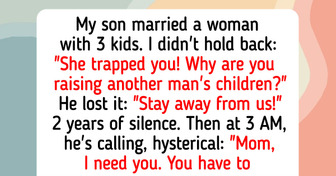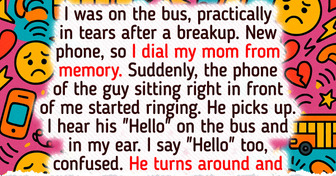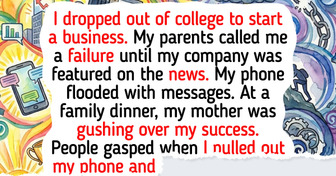18 Seniors Whose Sharp Wit Proves Humor Only Gets Better With Age

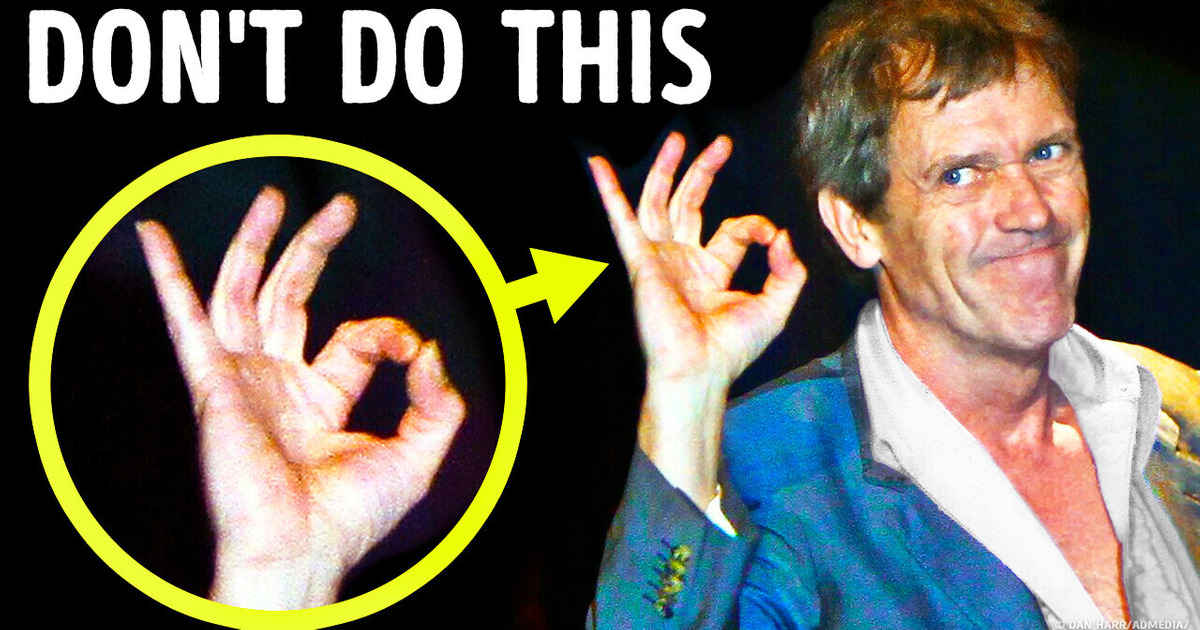
You’re dining in Paris, with a full belly of French onion soup and a mouthful of double chocolate soufflé. The waiter approaches asking how your meal was and, mouth full, you give a satisfied expression and make the A-OK gesture. You expect to see happiness on the waiter’s face, but he looks at you with irritation.
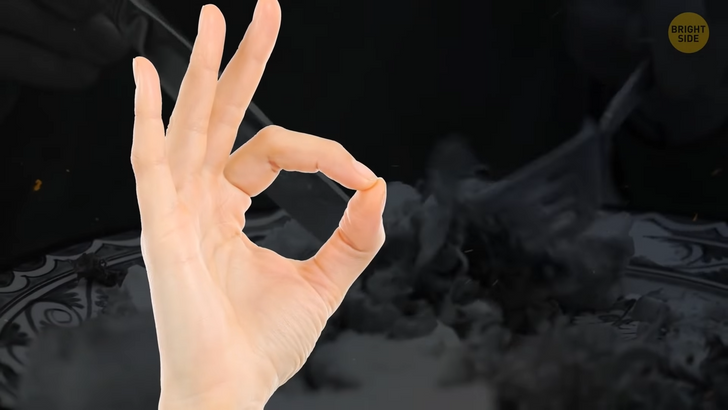
Well, it turns out that making a circle with your index finger and thumb does not mean ok in certain countries. In France, it means “zero” or “worthless.” Instead of praising the delicious food, you called it worthless! Oops.
In Venezuela, Turkey, and Brazil, it’s a hand gesture you shouldn’t use either. In these countries, this is a sign that will offend pretty much anyone you flash it at. ‘nuff said. Just give them your biggest smile and wait till you finish what’s in your mouth to give your proper thanks!
All over the world, giving a thumbs up is seen as a positive thing! It’s an expression of your liking towards something and that everything is good. In parts of Italy, West Africa, Iran, and Greece, though, it carries a stigma as an incredibly offensive gesture! When visiting Malaysia, you use this digit to point at things! So next time you’re trying to hitchhike in these countries, you should reconsider sticking out your thumb for a ride; you might never get picked up!
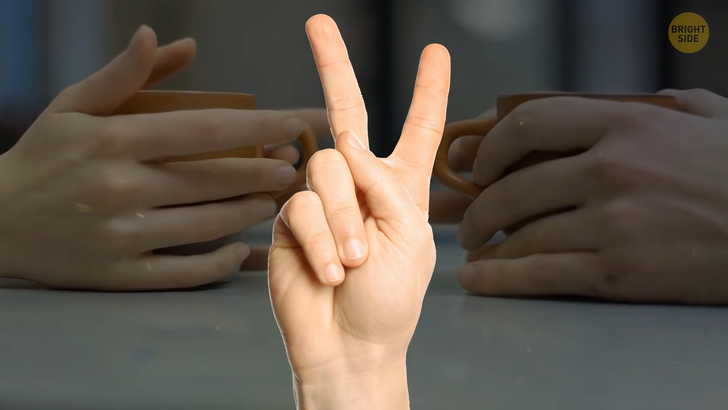
Trying to order two of anything or showing someone the peace sign in the UK, Australia, or New Zealand is fine, as long as you don’t have your hand the wrong way around! Do this gesture wrong, and you’re giving a very offensive hand signal! Which isn’t going to win you many friends! So, make sure that when you have your index and middle fingers pointed up in the V shape, your palm is facing outwards, and you’ll have a great time, Mate!
Bowing is used a lot in East Asian cultures to greet each other and guests. The deeper the bow is, the more respect you are being given! Fortunately, most Japanese don’t expect foreigners to understand the bowing etiquette right away! They’ll generally also accept a handshake or a nod, but being familiar and practicing your bowing etiquette before going to Japan will impress all the locals! How low can you go!

Using your index fingers is considered impolite in several European, Latin American, and African nations. It’s particularly rude in China, Japan, and Indonesia when pointing at a person. The gesture might be taken as you’re singling someone out to blame or insult them!
If you ask for directions in the Philippines, you might be left scratching your head, wondering where they’re pointing! Don’t be alarmed. The locals use their lips instead of raising their hands.
When in doubt, wherever you are in the world, just gesture toward a person or place using your entire hand! You might think that sticking your pinky finger out makes you look fancy, but in China, it’s frowned upon! This gesture is the same as giving a thumbs down and means that something is making you unhappy.
When taking photos with others, you want to be respectful and don’t want to make any obscene hand gestures. Two gestures to avoid, in particular, are sticking up only your pinky finger and pointing at something with a dirty object, like a used fork or chopstick.

Now, it’s fun to eat with chopsticks, but you might accidentally cause offense if you put them down the wrong way. When you’re in China, South Korea, or Japan, don’t make the mistake of sticking your chopsticks upright in a bowl of rice! This is considered bad luck... If you have to put your chopsticks down, simply place them on the side or across the bowl instead.
Likewise, when eating in South Korea or China, don’t ask someone to pass you some food! In these countries, you have to join in the action and grab what food you desire, and you’re not going to offend anyone if you take that last bite either!
In some places, it’s acceptable to blow your nose while at the dinner table. Not all of us are even prepared for the sudden tickle of the nose! But as long as you excuse yourself and turn away, everything is ok.

Except if you’re vacationing in Japan, China, or South Korea, where the chilies can make your nose runny very quickly! Never blow your nose in public!
If you must clear your nostrils, consider leaving the table and blowing your nose in the restroom or hiding away from any other observers while being quiet. It’s considered rude and unhygienic to the people around you. Always use a paper tissue, not a handkerchief, and throw it away after use.
Fiji is one of the top destinations in the world! Beautiful beaches and friendly people! Spending your vacation on this island, you’re bound to meet a few local Fijians that’ll want to shake your hand for a very long time! It’s customary to hold your hand for the entire time that you’re exchanging greetings! No matter how long!
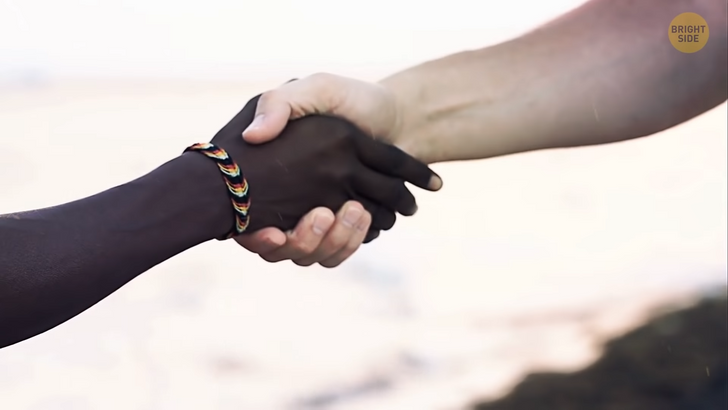
You should also make sure not to pull away too quickly; it’s considered very rude if you end the handshake abruptly! If you are in India, you put your hands together instead of shaking a person’s hand. Holding your hands in a prayer formation, tilt your head down slightly and greet the person with “Namaste” with your hands close to your chest.
Crossing your arms means nothing in most countries. Maybe you’re cold, bored, or it just feels more comfortable. In Finland, though, it’s likely to send the wrong kind of message! Having your arms crossed means major disrespect. Finnish people see this as a sign of arrogance and defiance.
It’s done mainly to tell the people around you that you’re looking for trouble! Yikes! This body language will be taken as a dare, so you’re likely to be confronted if you do it. Specifically, avoid crossing your arms at people directly. You don’t want to cause any trouble if you’re over there on holiday.

The head is the most sacred part of the body in Thailand, so patting anyone on the head can be seen as a serious offense! In the United States, patting or ruffling someone’s hair is meant to be playful or even an indication that someone’s done a good job!
But in Thailand, it’s best to keep your hands away from other people’s heads to avoid disrespecting or making them feel unclean! It’s also wise to not point with your toes as feet are considered the dirtiest part of the body. While on holiday, the last thing you want to be doing is insulting people!
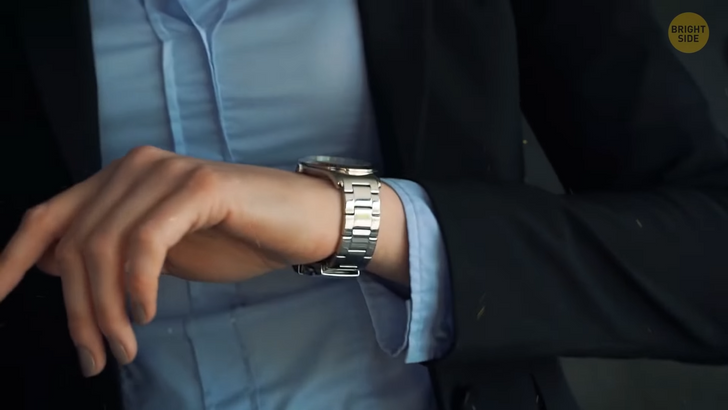
Looking at your watch in the middle of a conversation can be considered extremely rude in the Middle East! It looks like you’re in a hurry to get away from the person you’re talking to!
Even if you’ve got an appointment for something, you don’t want to be rude. Let the conversation run its natural course before checking the time. In Arabic culture, once communication has started, it must “take its time.” Get it!
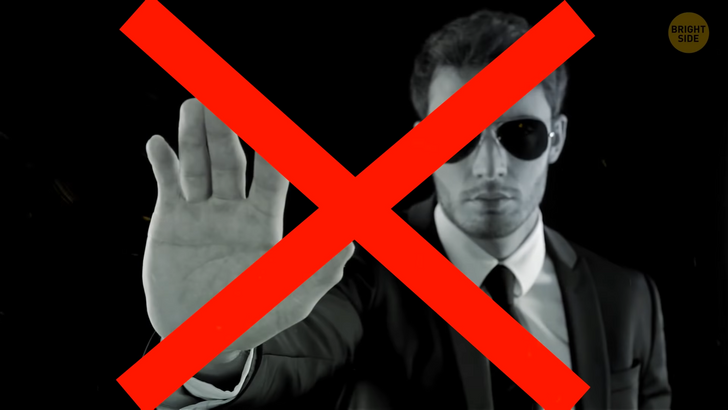
Don’t ever use the palm-out, fingers-up “STOP” gesture in Greece. You may not like the outcome if you do this to a local. This gesture is a huge insult to Greeks—a stigma that dates back to the Byzantine times!
Likewise in South Korea, don’t hail a cab or wave someone over to you with your palm facing up. If you do, you might be stuck there for hours! Waving your hand like that is how Koreans summon their dogs! The proper way to wave is to stick your arm out while having your palm facing down and moving your hand up and down vertically!
That isn’t the only thing to keep in mind in South Korea. If someone older than you offers a drink, the proper etiquette is to receive it with both hands and then turn your head away as you take your first sip. It’s a show of respect, and respecting one’s elders is taken VERY seriously in South Korea!


